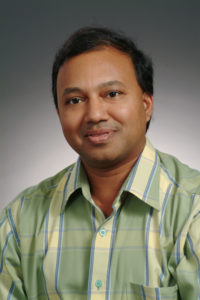
University of Florida, USA
Improved Euler-Lagrange Approach that captures fully-resolved physics for Multiphase Turbulence
Euler-Lagrange point-particle (EL-PP) technique has been increasingly employed for solving particle, droplet and bubble-laden flows. Since flow around the individual particles is not resolved, the accuracy of the technique depends on the fidelity of the force law used for representing the fluid-particle momentum exchange that occurs at the microscale. The applicability of the EL-PP approach is however limited to particles of size much smaller than the grid scale and to dilute flows where inter-particle interaction is weak. In this talk we will discuss recent fundamental developments that begin to ease these limitations. With increasing numerical resolution, as the grid size approaches the particle size, we face the unpleasant prospect of force law becoming less accurate. This is due to the self-induced flow generated at the particle location, which corrupts the estimation of undisturbed flow velocity that is needed in the force evaluation. We will discuss a theoretical approach to properly correcting for the self-induced flow. We will present the pairwise interaction extended point-particle (PIEP) model which rigorously extends the point-particle technique to higher volume fractions. Using a generalization of the Faxen theorem, this model systematically accounts for the precise location of all the neighboring particles in computing the hydrodynamic force on each particle. Further extension of the model using an hybrid approach that blends data-driven and physics-based approachs is showing great promise. The PIEP model predictions are compared against corresponding DNS in a number of multiphase turbulence test problems.
Short Biography
S. “Bala” Balachandar got his undergraduate degree in Mechanical Engineering at the Indian Institute of Technology, Madras in 1983 and his MS and PhD in Applied Mathematics and Engineering at Brown University in 1985 and 1989. From 1990 to 2005 he was at the University of Illinois, Urbana-Champaign, in the Department of Theoretical and Applied Mechanics. From 2005 to 2011 he served as the Chairman of the Department of Mechanical and Aerospace Engineering at the University of Florida. Currently he is a distinguished professor at the University of Florida. He is the William F. Powers Professor of Mechanical & Aerospace Engineering and the Director of College of Engineering Institute for Computational Engineering.
Bala received the Francois Naftali Frenkiel Award from American Physical Society (APS) Division of Fluid Dynamics (DFD) in 1996 and the Arnold O. Beckman Award and the University Scholar Award from University of Illinois. He is Fellow of ASME and the American Physical Society Division of Fluid Dynamics. He is currently the co-editor-in-chief of the International Journal of Multiphase Flow and a handling editor of the Theoretical and Computational Fluid Dynamics.